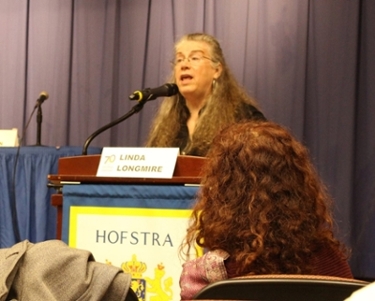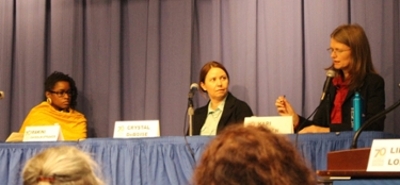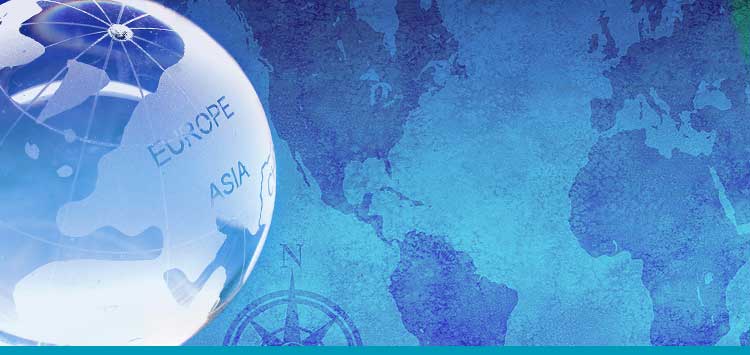Global Studies and Geography Faculty Participate in Commemoration of the 70th Anniversary of the Universal Declaration of Human Rights
Hofstra celebrated the 70th anniversary of the Universal Declaration of Human Rights on October 18, 2018, with a symposium presented by the Cultural Center, the Institute for Peace Studies, and the Center for Civic Engagement. Directed by our Dr. Linda Longmire, panels included the UDHR and Human Trafficking Today, Women’s Global Activism, and a keynote speech from Blanche Wiesen Cook, who is an expert on Eleanor Roosevelt, one of the main architects of this document. In her introduction to the event, Dr. Longmire called the Universal Declaration of Human Rights the “framework to make peace a reality”, and the panelists in the first lecture, the UDHR and Human Trafficking Today, reinforced this claim by sharing their own experiences working for organizations advocating for survivors of human trafficking.
The first panelist was Crystal DeBoise, who is a Co-Executive Director of the SOAR (Sharmus Outlaw Advocacy & Rights) Institute. DeBoise is a licensed clinical social worker and psychotherapist as well as an activist who has been instrumental in founding programs aimed at helping sex workers and survivors of human trafficking. She highlighted the importance of changing legislation and receiving government funding in order to better enforce the prosecution of traffickers. Furthermore, she emphasized the importance for her organization to understand what aspects of their advertisements prompt survivors of trafficking feel safe enough to reach out to them, such as the semantics of “work” versus “labor” and the professionalism being indicative of trustworthiness. Finally, DeBoise encouraged the audience to reject black-and-white thinking in order to understand trafficking as a symptom of societal vulnerabilities that are not the fault of the victims.
The next speaker on the panel was Dr. Makini Chisolm-Straker, the Co-Founder of HEAL Trafficking. Chisolm-Straker works as both an assistant professor of Emergency Medicine and as a clinician at Mount Sinai Hospital, where she educates healthcare professionals on how to recognize and treat survivors of human trafficking. She emphasized the significance of harm reduction, which she described as strategies giving possible survivors the option to disclose in the future, if they are not ready to do so presently. She also spoke about the importance of being willing to listen and learn from others, and concluded by explaining to the audience that even though this is not a problem that will be solved in our lifetimes, that does not mean we should not try.
Lastly, our own Dr. Kari Jensen shared some of her research conducted in Bangladesh concerning slavery of young people in the fish processing industry. She explained how risk factors pertaining to poverty and dysfunctional family situations effect this issue, and can be taken advantage of by a recruiter. Oftentimes, boys and young men are lured into the work with promises of easy tasks and high payment, which starkly contrasts to the reality. She emphasized the importance of enforcing the UDHR in order to liberate the young people in these situations and give them the means to take advantage of alternatives, such as going to school.
Overall, the symposium left students with the message that we must believe in social justice and peace and continue to work towards it.
Visit our Flickr page to view additional photos from the symposium.


